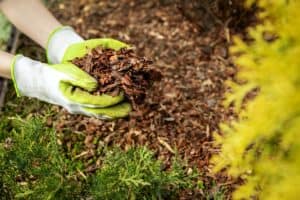Depending on where you live, winter this year may have been average at worst. Even in areas that get the coldest blizzards, the U.S. has experienced a milder winter than in the past two winters so far. It can probably change come February, so don’t put away your boots and shovel just yet.
Many plants don’t like winter, and it’s not just because of the feet of snow. The freeze can be just as harmful to them, inflicting damage to the stem and leaves. Moreover, winter is a time for dreadful frozen pipes which can make watering the garden absolutely challenging. At best, you’ll need to wait the winter out before you can start watering plants more regularly. So, before that time comes, you’d want to be ready to bring your garden back to its pre-winter glory.
For this, don’t just prepare for spring, but also the seasons ahead. Spring will be when your garden regrows in time for the heat of summer and the next cold autumn or winter. Investing in seasonal plants is a good idea, but even they need protection from the elements. For this, consider making mulch for your plants.
Mulch is a mixture that’s applied on the surface of the soil like a blanket. Nature makes mulch all the time in the form of fallen leaves and branches, but garden mulch contains additional ingredients such as manure, wood chips, compost, and lawn trimmings. The right mixture of these ingredients can help protect your plants not just for one season, but all year round.

Here are several reasons mulch is a must for your garden.
- Seasonal protection
One thing to remember is that mulch is not one material, but a mixture. It brings the best of multiple ingredients together to protect your lawn and flowers better. For example, lawn trimmings turned into mulch by mulching mowers help suppress weeds. When mixed with straw or hay, your lawn can be protected from the elements and last longer.
In the summer, a layer of mulch reduces the rate of water loss via evaporation in the soil. As weeds thrive in constant exposure to sunlight, mulch blocks most of it from coming in. In the winter, the mulch acts as a plant blanket, keeping the soil warm. In turn, plants suffer less from the effects of freeze and thaw cycles.
- Waste reduction
Mulching can significantly reduce a household’s waste footprint. Instead of a garbage bag, leftover food can go straight into the mulch along with lawn trimmings. In fact, mulching mowers reviewed by sites like ProperlyRooted make the task easier by cutting up the trimmings into mulch-able bits. Every bit of waste used as mulch is every bit kept away from landfills.
However, keep in mind that not everything is suitable for mulch. Do some research on what can and can’t go into the mixture beforehand. You can also ask a landscaping expert for advice.
- Improving soil fertility
After a certain period, mulch eventually breaks down and becomes the new topsoil, introducing a fresh batch of nutrients to plants. The mulch will seep into the soil with regular watering or rain.
Depending on the mixture, mulch can improve plant growth better than fertilizer. One test showed that mulch, while less dense, improved moisture retention, respiration, and pH balance. It managed to add essential nutrients such as nitrogen, phosphorous, and potassium. Plants treated with mulch grew bigger than those that only received water.
- Water conservation
As mentioned earlier, mulch helps retain moisture throughout the heat of summer. Anyone tending to a vegetable garden will tell you that saving water is crucial.
Global warming has limited access to water, with some droughts sapping reservoirs dry as a bone. In various parts of the world, farmers have resorted to covering their croplands in mulch to reduce water loss and, in turn, demand for irrigation. It’s a blessing to fruit and vegetables that comprise mostly of water, such as cucumbers, melons, and tomatoes.
In 2001, Dr. Eugene Hogue conducted a study on the effects of mulch on water conservation. He sprayed a paper slurry mulch on a row of young and old apple trees in British Columbia. The study showed that mulched young trees used 54% less water than their non-mulched counterparts. The same can be said for the old trees, albeit at only 15%.
Conclusion
It may require extra effort on your part, but the rewards mulch offers are worth it. There’s no telling how hot or cold the following seasons will get. That’s all the more reason to protect your garden as early as now. Whether your flowers will get to bloom again depends on how much mulch you put on.

Recent Comments